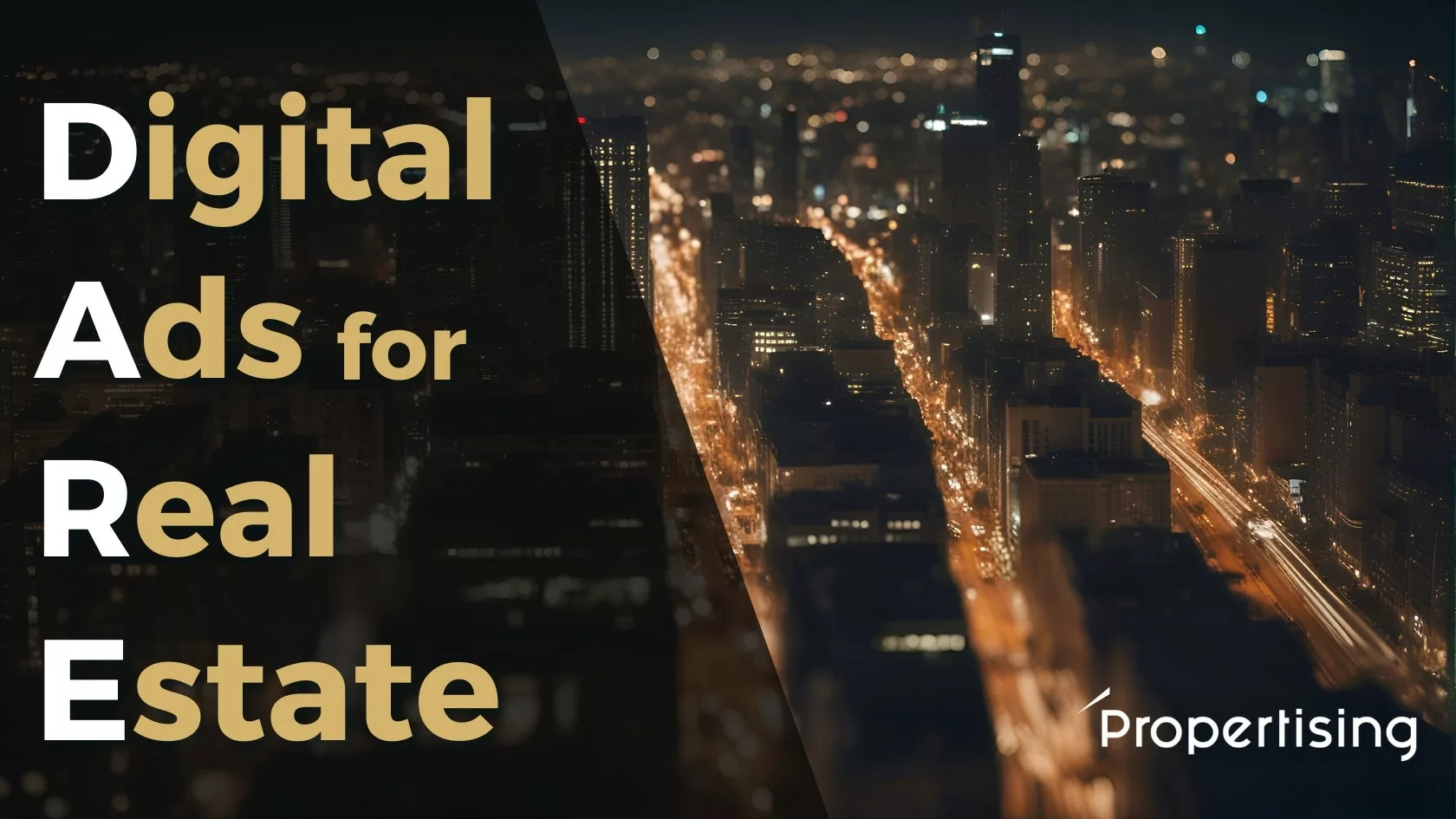Hello and welcome to this ultimate guide to social media marketing for real estate agents. If you’re a real estate agent who wants to grow your business and reputation online, you’re in the right place.
Social media marketing is the use of social media platforms to promote your brand, services, listings, and success stories to potential and existing clients. It’s a powerful way to connect with your audience, showcase your expertise, and generate leads and referrals.
Why is social media marketing important for real estate agents? Well, here are some reasons:
- According to the National Association of Realtors (USA), 98% of home buyers use the internet to search for homes, and 77% of them use social media as part of their search process. No metrics were presented by the respective European Association
- Social media marketing can help you increase your brand awareness, reach, and engagement by exposing your business to a large amount of users who are interested in real estate.
- SMM can help you generate leads and conversions by driving traffic to your website, landing pages, or contact forms, and capturing the information of qualified prospects.
- Social media marketing can help you showcase your expertise and success stories by sharing valuable content, testimonials, videos, live streams, and more that demonstrate your knowledge, skills, and results.
- SMM can help you build relationships with your audience by engaging with them through comments, messages, polls, quizzes, and more, and providing them with personalized and timely service.
- Social media marketing can help you stay ahead of the competition by using the latest trends, features, and strategies to stand out from the crowd and attract more attention and interest.
As you can see, social media marketing can offer you many benefits for your real estate business. But how do you get started? How do you choose the best platforms for your goals? How do you create engaging content that attracts and retains followers? How do you use paid ads to boost your results? How do you measure your performance and improve your strategy? And how do you follow the best practices to maintain a professional and ethical image on social media?
Don’t worry, we’ve got you covered. In this guide, we’ll answer all these questions and more. We’ll show you how to:
- Choose the right platforms for your niche, goals, budget, and time
- Create engaging content that is relevant, valuable, authentic, consistent, and visually appealing
- Use paid ads to target your ideal audience, showcase your value proposition, include a clear call to action, and optimize your budget and bidding strategy
- Measure your results using tools and analytics to track and analyze your data, set goals and benchmarks, and adjust your strategy accordingly
- Follow the best practices to be responsive, transparent, respectful, compliant with laws and regulations, and creative
By the end of this guide, you’ll have everything you need to master social media marketing for real estate agents. Ready? Let’s get started!
1. Choosing the Right Platforms
 One of the first steps to successful social media marketing for real estate agents is choosing the right platforms for your business. There are many social media platforms out there, but not all of them are suitable for your goals, audience, budget, and time.
One of the first steps to successful social media marketing for real estate agents is choosing the right platforms for your business. There are many social media platforms out there, but not all of them are suitable for your goals, audience, budget, and time.
Different social media platforms have different features, audiences, and goals for real estate marketing. For example:
- Facebook is the most popular and widely used social media platform, with over 2.9 billion monthly active users. It’s a great platform to reach a large and diverse audience, generate leads and referrals, build relationships, and showcase your brand and listings. You can use Facebook pages, groups, events, reels, live videos, marketplace, and more to promote your business.
- Instagram is a visual and mobile-focused platform, with over 1.3 billion monthly active users. It’s a great platform to showcase your listings, videos, stories, reels, and more in an attractive and engaging way. You can use Instagram to reach a more affluent audience, increase your brand awareness and engagement, and drive traffic to your website or landing pages.
- X formerly known as Twitter is a micro-blogging platform, with over 330 million monthly active users. It’s a great platform to follow the latest trends, news, and conversations in the real estate industry. You can use Twitter to share short and catchy tweets, videos, polls, hashtags, and more to increase your online visibility and authority, gain followers, and network with other professionals.
- LinkedIn is a professional networking platform, with over 774 million monthly active users. It’s a great platform to showcase your professional profile, credentials, achievements, and recommendations. You can use LinkedIn to connect with potential and existing clients, colleagues, partners, and influencers in the real estate industry.
- YouTube is a video-sharing platform, with over 2 billion monthly active users. It’s a great platform to create and share high-quality videos that showcase your listings, testimonials, tips, tutorials, interviews, live streams, and more. You can use YouTube to reach a large and engaged audience, increase your brand awareness and trustworthiness, and drive traffic to your website or landing pages. By using YouTube Shorts you can share your content for free to a wider audience through-out the platform.
- Pinterest is a visual discovery platform, with over 478 million monthly active users. It’s a great platform to create and share beautiful boards that display your listings, properties, styles, designs, and more. You can use Pinterest to reach a mostly female audience who are interested in home buying or selling, increase your brand awareness and engagement, and drive traffic to your website or landing pages.
As you can see, each platform has its own strengths and weaknesses for real estate marketing. So how do you choose the best platforms for your business? Here are some tips:
- Identify your target audience: Who are you trying to reach? What are their demographics, preferences, needs, and pain points? Where do they hang out online? What kind of content do they consume and engage with?
- Define your goals: What are you trying to achieve? Do you want to generate leads, increase brand awareness, showcase your expertise, build relationships, or something else?
- Assess your budget: How much money can you spend on social media marketing? Do you have enough resources to create high-quality content, run paid ads, or hire professionals?
- Evaluate your time: How much time can you dedicate to social media marketing? Do you have enough bandwidth to manage multiple platforms, create consistent content, engage with your audience, or measure your results?
- Test and learn: How do you know if a platform is working for you? Do you have tools and metrics to track and analyze your performance? Do you experiment with different strategies, formats, and features? Do you adjust your approach based on feedback and data?
By following these tips, you can choose the best platforms for your niche, goals, budget, and time. Remember, consistency is key for Social Media presence. It’s better to focus on one or two platforms that work well for you in the beginning than to spread yourself too thin across many platforms if you cannot make sure that you can manage them… until you do.
2. Creating Engaging Content
 Once you’ve chosen the right platforms for your business, the next step is to create engaging content that attracts and retains your followers. Content is the key to social media marketing, as it showcases your brand, services, listings, and success stories to your audience.
Once you’ve chosen the right platforms for your business, the next step is to create engaging content that attracts and retains your followers. Content is the key to social media marketing, as it showcases your brand, services, listings, and success stories to your audience.
But what kind of content should you create for real estate marketing? Well, there are many types of content that work well for real estate agents, such as:
- Listings: These are the bread and butter of your content strategy. You can share your listings on social media to showcase your properties, highlight their features and benefits, and generate interest and inquiries. You can use photos, videos, stories, live streams, 360-degree tours, and more to make your listings stand out and appeal to your audience. Make sure to share the listings that best represent your company’s core volume. You should not post only listings and try only hard selling mechanisms in Social Media if you would like to achieve broad audience.
- Testimonials: These are one of the most powerful ways to build trust and credibility with your audience. You can share testimonials from your happy clients on social media to showcase your results, reputation, and satisfaction rate. You can use text, images, videos, stories, live streams, and more to make your testimonials authentic and compelling. Remember that your audience will ultimately pay for your services so they have to choose you along with the represented listings.
- Videos: These are one of the most popular and engaging types of content on social media. You can use videos to showcase your listings, testimonials, tips, tutorials, interviews, live streams, and more. You can use different formats and features such as reels, shorts, IGTV, YouTube, etc. to make your videos attractive and interactive.
- Live streams: These are one of the most effective ways to connect with your audience in real time. You can use live streams to showcase your listings, testimonials, Q&A sessions, behind-the-scenes, events, and more. You can use different platforms such as Facebook, Instagram, Twitter, YouTube, etc. to make your live streams accessible and fun.
- Stories / Reels / Shorts: These short length videos are one of the most trendy and ephemeral types of content on social media. You can use them to showcase your listings, testimonials, tips, polls, quizzes and more. You can use different platforms such as Facebook, Instagram, Twitter, YouTube, etc. to make your content creative and engaging.
- Polls and quizzes: These are one of the most interactive and fun types of content on social media. You can use polls and quizzes to showcase your listings, testimonials, tips, trivia, challenges, and more. You can use different platforms such as Facebook, Instagram, Twitter, LinkedIn, etc. to make your polls and quizzes informative and entertaining. This type of content should be applied after your audience has increased in terms of volume.
- Infographics: These are one of the most visual and informative types of content on social media. You can use infographics to showcase your listings, testimonials, tips, statistics, trends, comparisons, and more. You can use different tools such as Canva, to make your infographics beautiful and easy to understand.
- Podcasts: These are one of the most audio-based and convenient types of content on social media. You can use podcasts to showcase your services, tips, interviews, stories, insights, and more. You can use different platforms such as Spotify, Apple Podcasts, etc. to make your podcasts accessible and enjoyable.
As you can see, there are many types of content that you can create for real estate marketing. But how do you create content that is relevant, valuable, authentic, consistent, and visually appealing? Here are some tips:
- Know your audience: What kind of content do they want to see from you? What kind of content do they respond to? What kind of content do they share with others? Use tools and analytics to understand their preferences, needs, pain points.
- Know your goals: What kind of content do you want to create for each platform? What kind of content do you want to create for each stage of the buyer’s journey? What kind of content do you want to create for each type of client?
- Know your value proposition: What kind of value do you offer to your audience? What kind of value do you offer to your clients? What kind of value do you offer to your industry? Use clear and compelling messages that highlight your unique selling points.
- Know your brand voice: What kind of tone do you want to use for your content? What kind of personality do you want to convey? What kind of emotions do you want to evoke? Use a consistent and authentic voice that reflects your brand identity and values.
- Know your content calendar: When do you want to create and publish your content? How often do you want to create and publish your content? How do you want to schedule and distribute your content? Use a content calendar that helps you plan, organize, and execute your content strategy.
- Know your content quality: How do you ensure that your content is high-quality and error-free? How do you ensure that your content is original and not plagiarized? How do you ensure that your content is compliant with laws and regulations? Use tools and best practices that help you check, edit, and optimize your content quality.
- Know your content optimization: How do you optimize your content for each platform? How do you optimize your content for SEO? How do you optimize your content for engagement? Use tools and techniques that help you optimize your content for performance and results.
By following these tips, you can create engaging content that attracts and retains your followers. Remember, content is king, but context is queen. It’s not enough to create great content, you also need to create the right content for the right platform, audience, goal, and time.
3. Engaging with Your Audience
 Successful social media marketing for real estate agents must include engagement with your audience. Engagement is the key to building relationships, trust, and loyalty with your followers. Engagement is also the key to increasing your reach, visibility, and conversions on social media.
Successful social media marketing for real estate agents must include engagement with your audience. Engagement is the key to building relationships, trust, and loyalty with your followers. Engagement is also the key to increasing your reach, visibility, and conversions on social media.
But what does engagement mean on social media? Well, engagement can be measured by different metrics, such as:
- Likes: These are the simplest and most common form of engagement on social media. They indicate that your followers like your content and appreciate your efforts. You can use likes to gauge the popularity and appeal of your content.
- Comments: These are the most conversational and personal form of engagement on social media. They indicate that your followers want to interact with you and share their opinions, questions, feedback, or stories. You can use comments to gauge the interest and relevance of your content.
- Shares: These are the most viral and influential form of engagement on social media. They indicate that your followers want to spread your content and recommend you to others. You can use shares to gauge the value and impact of your content.
- Clicks: These are the most actionable and goal-oriented form of engagement on social media. They indicate that your followers want to take the next step and visit your website or landing page. You can use clicks to gauge the effectiveness and conversion of your content.
As you can see, engagement is a crucial indicator of your social media marketing success. But how do you increase your engagement on social media? Here are some tips:
- Be responsive: How do you respond to your followers’ comments, messages, mentions, or reviews? Do you respond quickly, politely, and professionally? Do you provide helpful answers, solutions, or suggestions? Do you thank them for their feedback, support, or referrals? Be responsive and show that you care about your followers and their needs.
- Be interactive: How do you interact with your followers’ content, stories, polls, quizzes, or live streams? Do you like, comment, share, or participate in their activities? Do you tag them, mention them, or shout them out? Be interactive and show that you are interested in your followers and their lives.
- Be proactive: How do you initiate conversations with your followers or potential clients? Do you ask them questions, polls, quizzes, or challenges? Do you invite them to events, webinars, or consultations? Do you offer them tips, guides, or resources? Be proactive and show that you have something valuable to offer to your followers and their goals.
- Be human: How do you humanize your brand and personality on social media? Do you share your stories, behind-the-scenes, successes, failures, or fun facts? Do you use emojis, gifs, memes, or humor? Do you show your face, voice, or emotions? Be human and show that you are more than just a business, but a real person who can relate to your followers and their challenges.
By following these tips, you can increase your engagement on social media. Remember, engagement is a two-way street. It’s not enough to create great content, you also need to create great relationships with your followers.
4. Using Paid Ads
 Another way to boost your social media marketing for real estate agents is to use paid ads. Paid ads are sponsored posts that appear on your target audience’s feed or stories, based on their demographics, interests, behaviors, or keywords.
Another way to boost your social media marketing for real estate agents is to use paid ads. Paid ads are sponsored posts that appear on your target audience’s feed or stories, based on their demographics, interests, behaviors, or keywords.
Paid ads can help you reach more potential clients, increase your brand awareness, drive more traffic to your website or landing page, and generate more leads and conversions.
But how do you use paid ads effectively for real estate marketing? Here are some tips:
- Choose the right platform for your ads, based on your goals, budget, and audience. For example, Facebook and Instagram are great for reaching a large and diverse audience, while LinkedIn and Twitter are great for reaching a professional and niche audience.
- Google is not a social media platform but it should have an honorable mention in paid online advertising
- Choose the right format for your ads, based on your content, message, and call-to-action. For example, photo and video ads are great for showcasing your listings, testimonials, or tips, while carousel and collection ads are great for showcasing multiple properties or features.
- Choose the right objective for your ads, based on your desired outcome and measurement. For example, awareness objectives are great for increasing your reach and impressions, while conversion objectives are great for increasing your leads and sales.
- Choose the right targeting for your ads, based on your ideal client profile and market research. For example, you can target your ads by location, interests, behaviors, or keywords.
- Choose the right budget for your ads, based on your available resources and expected return on investment. For example, you can set a daily or lifetime budget for your ads, as well as a bid strategy that optimizes your cost per result.
- Choose the right creative for your ads, based on your value proposition, brand voice, and content quality. For example, you can use high-quality images or videos that showcase your properties or services, catchy headlines or captions that highlight your benefits or offers, and clear and compelling call-to-actions that urge your audience to take action.
By following these tips, you can use paid ads effectively for real estate marketing. Remember, paid ads are a supplement, not a substitute, for organic social media marketing. You still need to create and engage with great content to build trust and loyalty with your audience.
5. Measuring Results
 How do you know that your social media marketing is successful or not? Measuring results is the key to evaluating your performance, identifying your strengths and weaknesses, and improving your strategy.
How do you know that your social media marketing is successful or not? Measuring results is the key to evaluating your performance, identifying your strengths and weaknesses, and improving your strategy.
But how do you measure results on social media? Well, you need to use analytics tools and metrics that help you track and analyze your data. Here are some examples:
- Analytics tools: These are software or applications that help you collect, organize, and visualize your data. For example, you can use Facebook Insights, LinkedIn Analytics, Twitter Analytics, or Google Analytics to monitor your social media activity and performance.
- Metrics: These are numerical or qualitative indicators that help you measure your data. For example, you can use reach, impressions, engagement, clicks, leads, conversions, or revenue to measure your social media outcomes and goals.
So, measuring results is a crucial part of your social media marketing success. But how do you use analytics tools and metrics effectively for real estate marketing? Here are some tips:
- Define your goals: What are your specific and measurable goals for your social media marketing? What do you want to achieve and how do you want to measure it? Define your goals clearly and align them with your business objectives.
- Choose your tools: What are the best analytics tools for your social media platforms and goals? What features and functions do they offer and how do they suit your needs? Choose your tools wisely and learn how to use them properly.
- Choose your metrics: What are the most relevant and meaningful metrics for your social media platforms and goals? What data do they provide and how do they relate to your performance? Choose your metrics carefully and understand what they mean.
- Monitor your data: How often and how long do you monitor your data? How do you organize and visualize your data? How do you compare and contrast your data? Monitor your data regularly and systematically.
- Analyze your data: How do you interpret and evaluate your data? How do you identify patterns, trends, or anomalies in your data? How do you draw conclusions and insights from your data? Analyze your data critically and objectively.
- Improve your strategy: How do you use your data to improve your strategy? How do you adjust or optimize your platforms, content, ads, or engagement based on your data? How do you test or experiment with new ideas based on your data? Improve your strategy continuously and creatively.
By following these tips, you can measure results effectively for real estate marketing. Remember, measuring results is not a one-time event, but an ongoing process. You need to monitor, analyze, and improve your social media marketing constantly to achieve the best results.
6. Following Best Practices
 The last step to successful social media marketing for real estate agents is following best practices. Best practices are guidelines and recommendations that help you optimize your social media marketing and avoid common mistakes or pitfalls.
The last step to successful social media marketing for real estate agents is following best practices. Best practices are guidelines and recommendations that help you optimize your social media marketing and avoid common mistakes or pitfalls.
But what are the best practices for social media marketing for real estate agents? Well, there are many best practices that you can follow, but here are some of the most important ones:
- Be consistent: How consistent are you with your social media marketing? Do you post regularly and frequently? Do you use a consistent and authentic voice and style? Do you follow a consistent and realistic schedule and plan? Be consistent and show that you are reliable and professional.
- Be relevant: How relevant are you with your social media marketing? Do you post content that is valuable and useful for your audience? Do you post content that is timely and current for your market? Do you post content that is tailored and personalized for your audience? Be relevant and show that you are knowledgeable and helpful.
- Be social: How social are you with your social media marketing? Do you engage with your audience and other users? Do you join or create communities and groups? Do you collaborate or partner with other agents or influencers? Be social and show that you are friendly and approachable.
- Be ethical: How ethical are you with your social media marketing? Do you follow the rules and regulations of your platforms and industry? Do you respect the privacy and rights of your clients and prospects? Do you disclose any affiliations or endorsements? Be ethical and show that you are trustworthy and honest.
By following these best practices, you can optimize your social media marketing for real estate agents and avoid any potential issues or problems in the long run.
So, Social Media Marketing for Real Estate?
Social media marketing is a powerful and essential tool for real estate agents in the digital age. It can help you reach, attract, and convert more clients, as well as build your brand, reputation, and network.
But to succeed in social media marketing, you need to follow a strategic and systematic approach. You need to:
- Choose the right platforms for your business, based on your goals, audience, and resources.
- Create engaging content for your platforms, based on your value proposition, brand voice, and content calendar.
- Engage with your audience on your platforms, based on your responsiveness, interactivity, proactivity, and humanity.
If you follow these steps while Measuring results and Following Best Practices, you can master social media marketing for real estate agents and grow your business online.
I hope you found this article helpful and informative. If you have any questions or feedback, please feel free to contact Propertising and me directly. Thank you for reading and happy marketing! 😊





